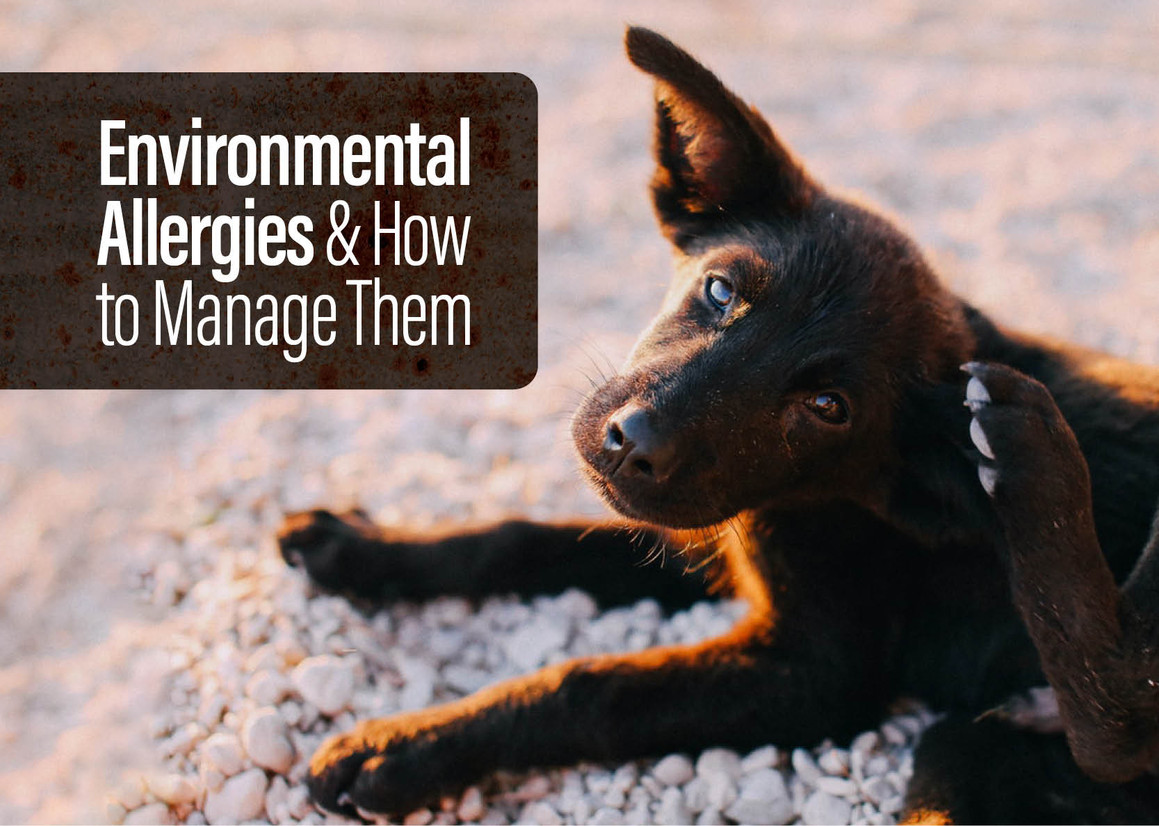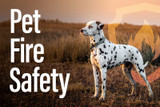Spring Into Allergies
Spring is a beautiful time of year: days are longer, temperatures are warmer, and everything that was white and grey now goes back to green! For many, including our pets, spring also means allergies are back in full force…
We often associate allergies with food, but environmental allergies, unlike food allergies, are very hard to avoid. Despite the difficulty, there are tools that can be used to prepare your pet’s immune system and overall health. This can be done to inhibit reactions and hopefully reduce the use of medications.
Immune Health is Linked to Gut Health
When snow is melting and the temperature rises, everything smells stronger and is much more appealing to your dog – fresh grass, rotting plants, defrosting poops… These temptations lead to gastrointestinal issues. What Is the correlation between digestion issues and allergies? The fact is that immune health is directly linked to gut health. Spring should be considered a critical time for both digestive issues and environmental allergies.
Be Proactive When it Comes to Environmental Allergies
April is a great month to start giving probiotics and other digestive supplements like Thrive Pro-Gut or Fermented Goat Milk. When your pet’s gut is packed with a large variety of healthy bacteria and microbes, they experience fewer opportunities for digestive upset. Eating wet soil and animal poop means your pet will ingest a significant number of microbes – if there is space for them to settle down and grow in your dog’s intestines, this is when we notice issues such as loose stools and even vomiting. Food becomes harder to digest because the good bacteria are overtaken by bad bacteria. This puts huge pressure on the immune system as it battles against harmful invaders in the gut. The immune system can be more prone to reacting to any possible threat, including environmental allergens such as pollen.
Giving probiotics regularly during the spring months, from April to June, is a great way to support your pet’s optimal health. Supervising your pet’s outdoor adventures is also essential to make sure they are not tasting every smelly thing they find outside.
Some dogs can still develop environmental allergies, getting itchy ears, paws, and/or belly. Another great preventative is Thrive Bovine Colostrum. Bovine Colostrum isn’t the “active” ingredient. The colostrum itself is not a source of antibodies and do not directly impact the allergic reaction. However, Bovine Colostrum interacts with the immune cells entering the intestine. The partially digested immune factors “communicate” with the system, helping to regulate it. By giving Bovine Colostrum early, you can significantly reduce the possibility of allergic reaction.
Did you know that, by simply offering raw food to your pet, you are already preventing allergies and inflammatory skin reactions? There are studies that show feeding a raw diet will help in the prevention of dermatitis. Including whole fish, fish oil and some plant-based oil in your pet’s diet can also be very beneficial for skin health.
Bovine Colostrum impact on dog immune system:
https://pubmed.ncbi.nlm.nih.gov/23773360/
The role of gut microbiome on immune system:
https://pubmed.ncbi.nlm.nih.gov/31993446/
Positive effect of probiotics on gut microbiome and immune functions:
https://pubmed.ncbi.nlm.nih.gov/28721546/
https://pubmed.ncbi.nlm.nih.gov/12672936/
https://pubmed.ncbi.nlm.nih.gov/33102555/
Studies on how raw may help prevent allergies and dermatitis:
https://pubmed.ncbi.nlm.nih.gov/17845618/
https://pubmed.ncbi.nlm.nih.gov/33178726/
Recent Posts
-
Fire Safety for Dog Owners
We’re honoured to welcome Fire Chief Dave Upper of St. Catharines, Ontario, as a guest co
-
Ahiflower: A new earth-friendly Omega choice
Fish oils are a formidable and essential component of a pet’s diet, benefitting skin and coat
-
Hydration Matters
Why Your Pet May Still Be Dehydrated (Even with a Full Water Bowl) Hydration is probably one o





